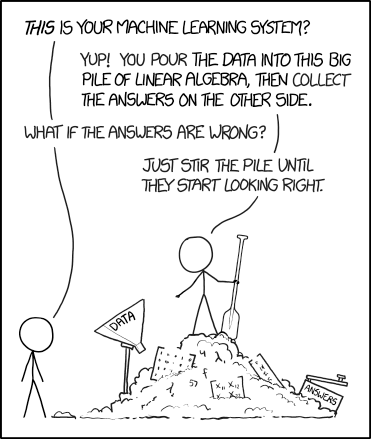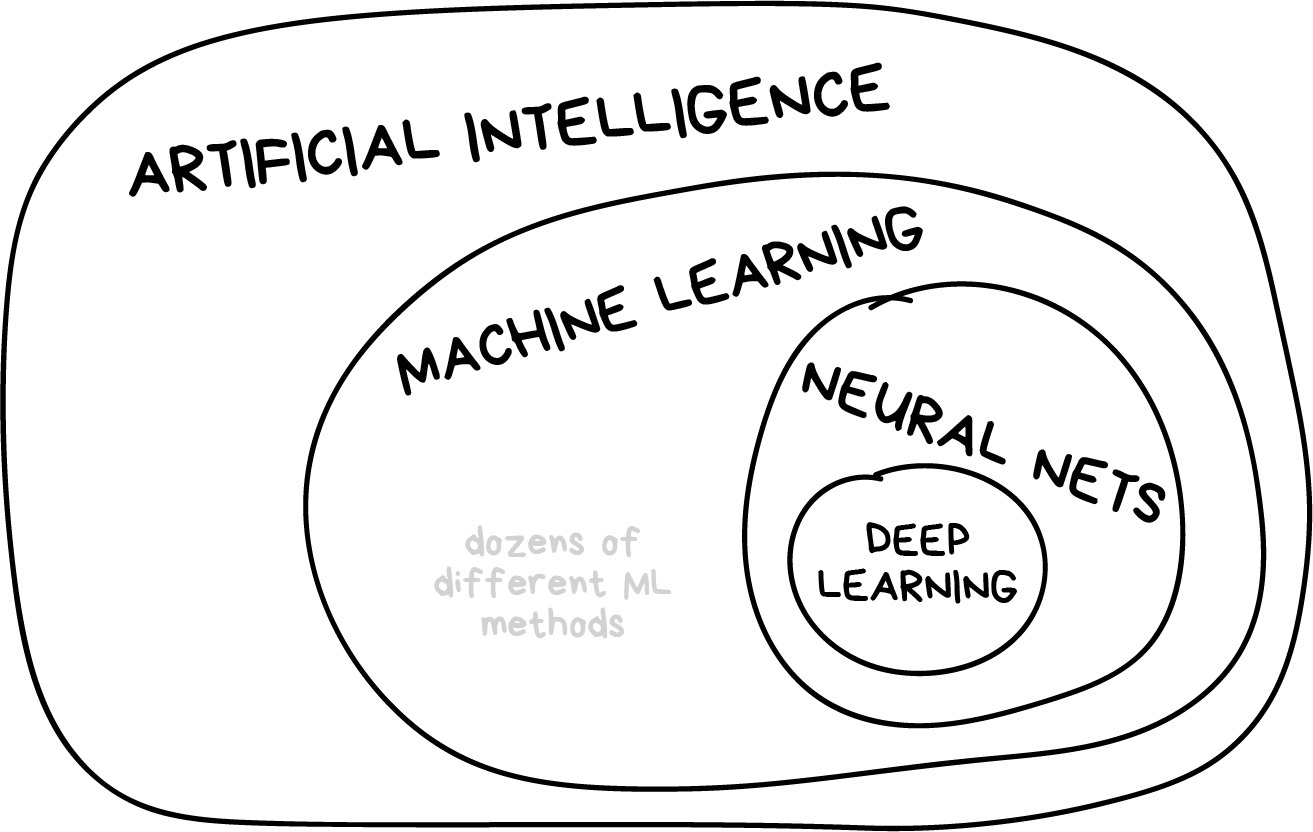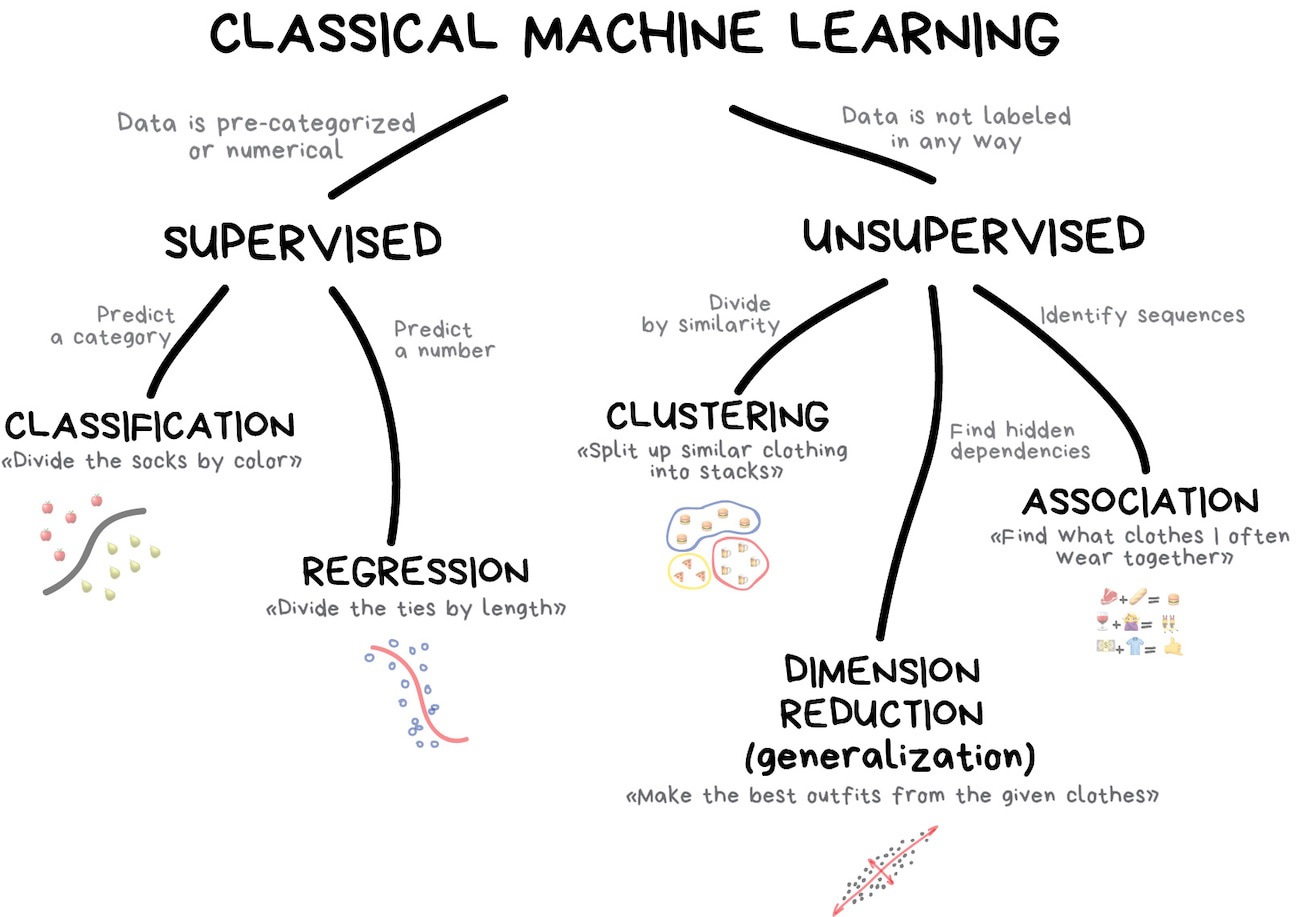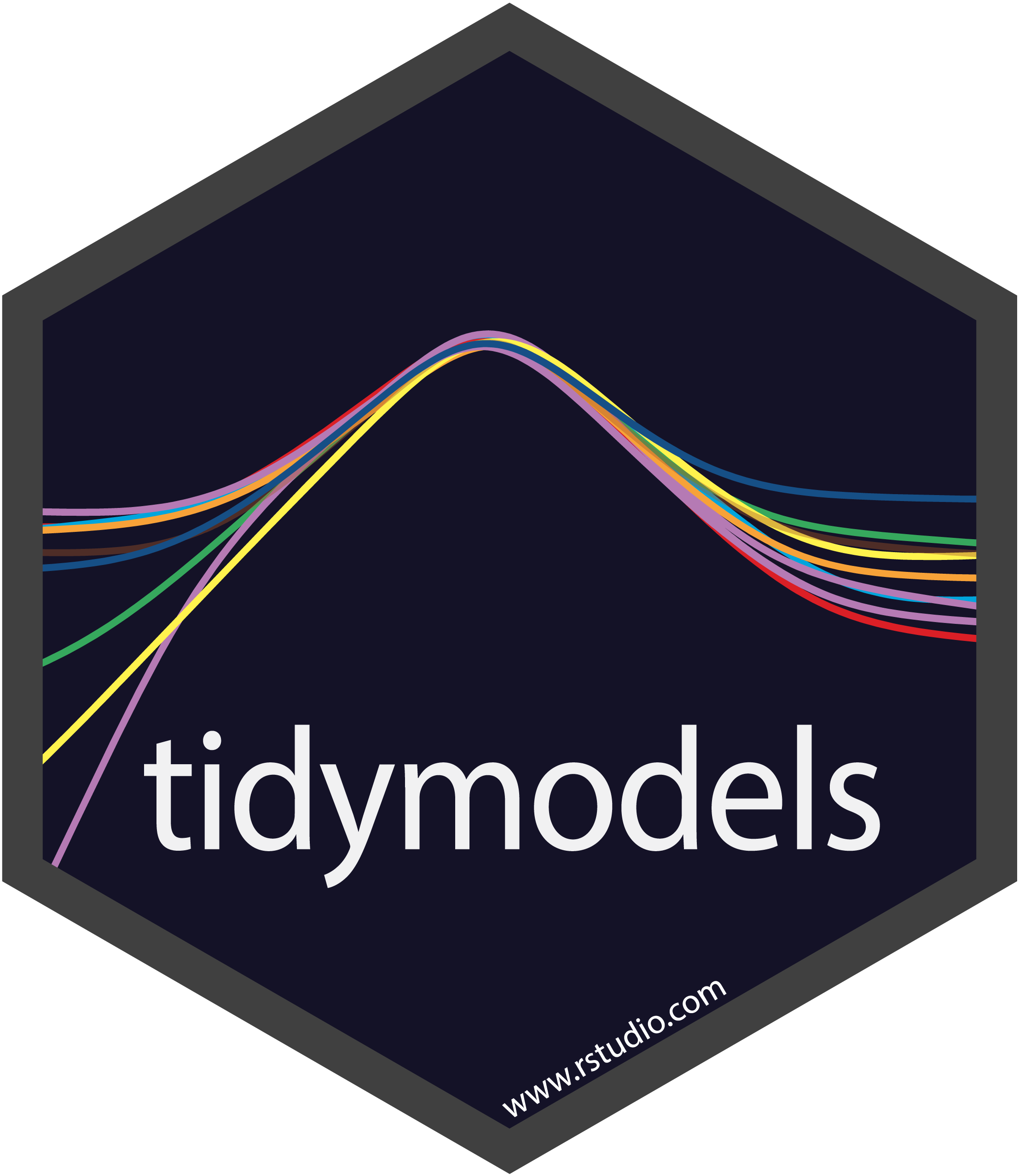03:00
1 - Introduction
Machine learning with tidymodels
Welcome!
Wi-Fi network name
tktk
Wi-Fi password
tktk
Who are you?
You can use the magrittr
%>%or base R|>pipeYou are familiar with functions from dplyr, tidyr, ggplot2
You have exposure to basic statistical concepts
You do not need intermediate or expert familiarity with modeling or ML
Who am I?
Many thanks to RStudio tidymodels team, Alison Hill, and Allison Horst for their role in creating these materials!
Asking for help
🟪 “I’m stuck and need help!”
🟩 “I finished the exercise”
Plan for this workshop
- Your data budget
- What makes a model
- Evaluating models
- Feature engineering
- Tuning hyperparameters
- Wrapping up!
Introduce yourself to your neighbors 👋
What is machine learning?

What is machine learning?

Illustration credit: https://vas3k.com/blog/machine_learning/
What is machine learning?

Illustration credit: https://vas3k.com/blog/machine_learning/
Your turn

How are statistics and machine learning related?
How are they similar? Different?
What is tidymodels? ![]()
library(tidymodels)
#> ── Attaching packages ──────────────────────────── tidymodels 1.0.0 ──
#> ✔ broom 1.0.0 ✔ rsample 1.0.0
#> ✔ dials 1.0.0 ✔ tibble 3.1.8
#> ✔ dplyr 1.0.9 ✔ tidyr 1.2.0
#> ✔ infer 1.0.2 ✔ tune 1.0.0
#> ✔ modeldata 1.0.0 ✔ workflows 1.0.0
#> ✔ parsnip 1.0.0 ✔ workflowsets 1.0.0
#> ✔ purrr 0.3.4 ✔ yardstick 1.0.0
#> ✔ recipes 1.0.1
#> ── Conflicts ─────────────────────────────── tidymodels_conflicts() ──
#> ✖ purrr::discard() masks scales::discard()
#> ✖ dplyr::filter() masks stats::filter()
#> ✖ dplyr::lag() masks stats::lag()
#> ✖ recipes::step() masks stats::step()
#> • Use tidymodels_prefer() to resolve common conflicts.
